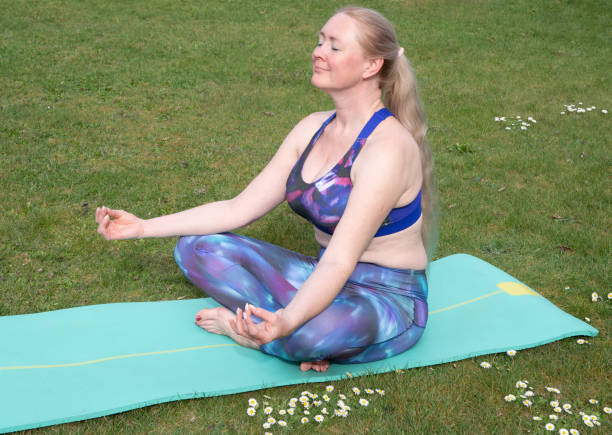Pregnancy is a transformative journey that brings about significant changes in a woman’s body and mind. It’s a time of excitement, anticipation, and sometimes, apprehension. As expectant mothers navigate through the physical and emotional adjustments, incorporating yoga into their routine can offer a multitude of benefits. Yoga, with its gentle yet effective techniques, can be a valuable tool for enhancing the prenatal experience. Here are six compelling reasons why expectant mothers should consider taking up yoga during pregnancy:
- Promotes Physical Well-being: Pregnancy often brings discomfort, such as back pain, nausea, and fatigue. Practicing yoga can alleviate these discomforts by improving flexibility, strengthening muscles, and enhancing circulation. Yoga poses specifically tailored for pregnant women focus on gently stretching and toning the body, easing tension, and promoting relaxation. Additionally, certain yoga poses can help relieve common pregnancy-related ailments like sciatica and swollen ankles. Regular practice of prenatal yoga can contribute to overall physical well-being, making the journey of pregnancy more comfortable and enjoyable.
- Enhances Mental Health: Pregnancy is not only a physical journey but also an emotional one. Hormonal fluctuations, coupled with the anticipation of childbirth and parenting, can sometimes lead to stress, anxiety, and mood swings. Yoga provides a sanctuary for expectant mothers to calm their minds, connect with their breath, and cultivate inner peace. Through mindful breathing techniques and meditation, yoga encourages mental clarity and emotional balance. It empowers women to embrace the present moment, letting go of worries and fears associated with pregnancy. By fostering a positive mindset and reducing stress levels, prenatal yoga can contribute to overall mental well-being during this transformative time.
- Prepares for Labor and Delivery: The practice of yoga equips expectant mothers with valuable tools and techniques to prepare for labor and delivery. Certain yoga poses, such as pelvic floor exercises and gentle hip openers, can help strengthen the muscles needed for childbirth. Additionally, practicing mindfulness and relaxation techniques during yoga sessions can enhance pain management skills and foster a sense of empowerment during labor. By cultivating awareness of the breath and the body, women can navigate through contractions with greater ease and resilience. Incorporating yoga into prenatal care provides practical preparation for the physical and emotional demands of childbirth.
- Fosters Bonding with the Baby: Pregnancy is a profound time of connection between mother and child. Yoga offers expectant mothers an opportunity to deepen this bond through mindful movement and meditation. Prenatal yoga classes often include practices that encourage mothers to connect with their babies, such as gentle massage, visualization, and guided relaxation. By nurturing this connection on a physical and emotional level, yoga helps mothers cultivate a sense of closeness and intimacy with their unborn child. This bonding experience not only benefits the mother but also lays a foundation for a nurturing relationship between parent and baby after birth.
- Builds a Supportive Community: Embarking on the journey of pregnancy can sometimes feel overwhelming, especially for first-time mothers. Participating in prenatal yoga classes provides a supportive community where expectant mothers can share experiences, ask questions, and receive encouragement from peers and instructors. The sense of camaraderie cultivated in these classes fosters a supportive environment where women can feel understood and supported throughout their pregnancy journey. Connecting with other expectant mothers who are facing similar challenges can be reassuring and empowering, enhancing the overall pregnancy experience.
- Promotes Postpartum Recovery: The benefits of yoga extend beyond pregnancy and childbirth into the postpartum period. Practicing yoga during pregnancy helps women maintain strength, flexibility, and mental resilience, which can facilitate a smoother transition into the postpartum phase. Certain yoga poses and breathing techniques can aid in postpartum recovery by targeting areas of the body that may be affected by childbirth, such as the pelvic floor and abdominal muscles. Moreover, the mindfulness and relaxation skills acquired through yoga practice can help new mothers cope with the physical and emotional demands of caring for a newborn. By laying the groundwork for postpartum well-being, prenatal yoga sets the stage for a more balanced and fulfilling postpartum experience.
Yoga offers expectant mothers a holistic approach to support their physical, mental, and emotional well-being throughout pregnancy and beyond. By incorporating yoga into their routine, women can experience enhanced physical comfort, emotional resilience, and a deeper connection with their babies. Prenatal yoga equips women with valuable tools and techniques to prepare for childbirth, fosters a supportive community, and promotes postpartum recovery. Ultimately, embracing yoga during pregnancy can enrich the journey of motherhood, nurturing both the body and the spirit as women embark on this transformative path.




